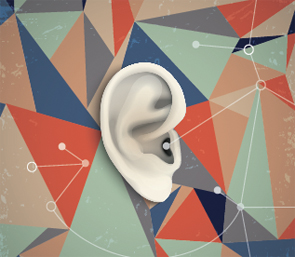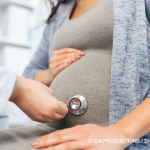
People diagnosed with osteoporosis have almost twice the risk of developing hearing loss as those without the condition.
A-R-Image Credit: T/shutterstock.com
People diagnosed with osteoporosis have almost twice the risk of developing hearing loss as those without the bone-fragile skeletal disease, according to results from a large retrospective study in Taiwan.
The study looked at the risk of sudden sensorineural hearing loss (SSHL) using data collected from Taiwan’s National Health Insurance claims and is believed to be the largest study of its kind among an Asian population. Kai-Jen Tien, MD, of Chi Mei Medical Center, and colleagues in Taiwan presented their results in the April issue of the Journal of Clinical Endocrinology & Metabolism.1
Increased Risk for Hearing Loss
Their results showed that patients with osteoporosis have a 1.76 times higher risk of developing SSHL than patients without osteoporosis. Although previous studies have pointed to an increased prevalence of the condition in osteoporotic patients, the risk was unclear, write the study authors.
Sensorineural hearing involves the inner ear, cochlea or the auditory nerve and is one of three types of hearing loss. Also called sudden deafness, SSHL is acute, unexplained and often occurs in just one ear, according to the National Institute of Deafness and Other Communication Disorders.
Hearing returns spontaneously for about 50% who develop the disorder, and an estimated 85% of people treated for it are able to recover some hearing, notes a release from the Endocrine Society, publisher of the journal. The study explored how the condition might be associated with osteoporosis, a progressive condition that causes bones to become structurally weak and more likely to fracture.
“A growing body of evidence indicates that osteoporosis affects not only bone health, but the cardiovascular and cerebrovascular systems,” Dr. Tien says in the release. “Our findings suggest sudden sensorineural hearing loss (SSHL) can be another broader health problem connected to osteoporosis.”
Screen for Hearing Loss
The findings of the study may be useful in the daily practices of rheumatologists everywhere because the prevalence of osteoporosis is increasing worldwide, notes Dr. Tien in an e-mail to The Rheumatologist. Early detection and treatment of hearing loss could result in better outcomes, he says.
“In our daily practice, hearing loss was often ignored and seen as an independent event which was not related to osteoporosis,” says Dr. Tien. “The physicians and patients should be alert for the association.”
Study Details
Osteoporosis was diagnosed by measuring bone mineral density using dual-energy X-ray absorptiometry in the large retrospective study, which used randomized samples of 1 million people from the national database. Researchers compared the data of 10,660 people with newly diagnosed osteoporosis from 1998 to 2008 with a control group of 31,980 people without the disease.
The participants who had been diagnosed with osteoporosis had a much higher risk of developing SSHL than the control group. Among the participants who had osteoporosis, 91 were diagnosed with SSHL during the follow-up period. In comparison, the control group, which was triple the size, included 155 people who were diagnosed with SSHL, according to the release.
The study excluded patients who were diagnosed before 1999 and those who had SSHL before they were diagnosed with osteoporosis. In the analysis, researchers used data of the newly diagnosed with osteoporosis as the starting point and followed up the population until the hearing loss occurred, the patient died or until end of year 2011, says Dr. Tien.
There were no significant differences in patient demographics among the two groups in relation to age, sex and healthcare costs. Most patients in the study were women (89.51%) who were older than 50 years of age (91%).
The risk of hearing loss for patients with osteoporosis was higher for those older than 50 and even higher still for those older than 65. Those with severe osteoporosis may have higher risk of SSHL than patients with milder cases, the authors note.
Dr. Tien says the study provides clues through the population-based evidence of the relationship between osteoporosis and sudden hearing loss. But he and his coauthors note that osteoporosis and hearing loss are both “complex disorders that may be caused by multiple mechanisms, such as cardiovascular risk factors, bone demineralization inflammation and endothelial dysfunction.”
Future Directions
“Since a population-based study has certain bias, future studies may have to do more detail and investigate whether anti-osteoporosis therapy can protect or prevent the risk of future hearing loss,” says Dr. Tien.
Catherine Kolonko is a medical writer based in Oregon.
References
- Yeh MC, Weng SF, Shen YC, et al. Increased risk of sudden sensorineural hearing loss in patients with osteoporosis: A population-based, propensity score-matched, longitudinal follow-up study. J Clin Endocrinol Metab. 2015 Jun;100(6):2413–2419.
